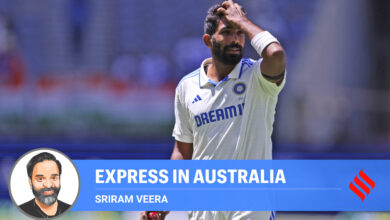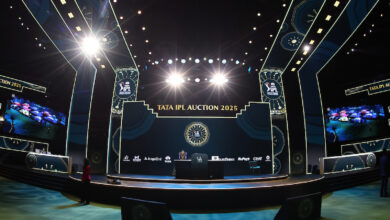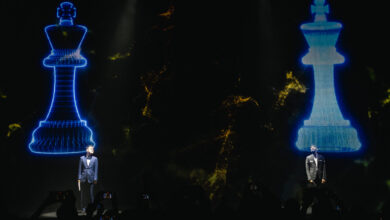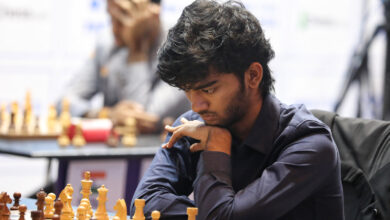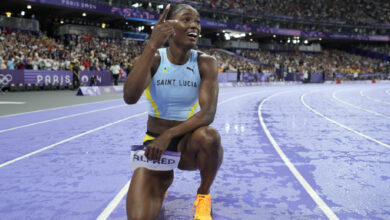Will the budget cuts hamstring coach Park Joo-Bong and Japan’s yearning for Paris Olympic medals in Badminton? | Badminton News

Park Joo-bong, a former Korean doubles legend and the longterm director of Japanese badminton for 20 years, put into place robust systems to nurture the much-loved but low-key sport. He wasn’t looking to build a factory of champions, though matching China’s longtime success was certainly a goal. But he shepherded players who would turn out to be excellent athletes, respectful, well-behaved competitors, and most importantly composed, balanced, happy humans who loved badminton, and didn’t view the sport as a torturous path to global success. He stoically and gracefully guided Kento Momota, Nippon badminton’s poster boy, through international dominance with 3 world titles, suspension post a gambling ban, a strong comeback, loss at the Olympics and a tragic accident and an emotional retirement. Ambition was recalibrated to adopt a humane approach, as Momota was gently guided to enjoy his time on the badminton court, and not discarded or unduly pushed to regain past levels. It was as democratic and collaborative a system as sports could get, with the athlete’s well-being at its core. Japan tasted unprecedented success in doubles, mixed doubles and women’s singles in this time.
Nozomi Okuhara and Akane Yamaguchi, scouted out when young, proved that you didn’t need to be tall and powerful to find top-level success as their inherent skills were maximized, and games polished to World Championship perfection. With Tomoka Miyazaki and Kodai Naraoka and a host of other successes in World juniors, Coach Park has ensured that the launchpad for future success is set in place, before he ends his stint post the Paris Olympics.
All, or most of it, was geared towards watching Japan nail the podiums at their home Tokyo Olympics. But like most things in sport and life, modern fairytales run into glitches and glorious sunsets get cruelly denied. Coach Park did all things right, played the rules, didn’t game systems, but a mix of the pandemic-induced fears and the unique strict challenges and uncertainty on Ground Zero meant Japanese shuttlers turned up at the Games fortnight severely undercooked.
A solitary bronze in mixed doubles was won Japan, when they actually had gold contenders in every category. It was a bitter culmination of a dream the system had earnestly worked towards. Japan stuck to the process.
This past week, Coach Park was informed that the budget for training funds for the Japanese national team for fiscal 2024 was reduced from about 500 million yen to about 300 million yen. Daily Sports reported that one of two training camps scheduled at the Ajinomoto National Training Center (Kita-ku, Tokyo) was canceled due to the cash crunch after embezzlement and other scandals of the central funding bodies were uncovered in 2022.
The soft-spoken, gentle giant who had poured his life into putting together the system, working hard on young talent, was being tested once more. Daily Sports quoted the 60-year-old as saying, “We’re on the borderline (for medals) in all events, but our chances are slim. It’s tough. The Tokyo Olympics was a tournament where we had a chance, but the result was disappointing. We’re going to the Paris Olympics with a desire for revenge, but (the outlook) is tough.”
Naraoka, though World No 2, is not in the same stratosphere as Momota. Yamaguchi is hampered hip injury problems and the multiple World Champion though always tough to beat, will find Paris fetching up two seasons too late from her prime. China has regained supremacy in women’s doubles that it ceded to Japan at the Rio Olympics, which were to be a dress rehearsal for Tokyo. Mixed stays competitive as always, but coach Park’s last throw of the dice will be his toughest challenge. It’s a familiar and endearing sight, with PJB putting an arm round the shoulders of defeated Japanese and being there for them at the lowest. But Paris medals can be special for the tragic former Games hosts who were constrained their own strict social dancing diktats.
The grand ol’ Gandalf of badminton though, can wisely steer their Frodos, Sams, Gimlis, Legolases and Striders. And it would be foolish to write off Japan and just how determined they are to make amends at Paris, despite a deluge of obstacles.
The budget bugle that canned two previous camps already left Park Joo-bong fuming. “It’s a real shock. I conveyed the opinions of the field (at the meeting), but (it was not realized), and it’s unfortunate,” he was quoted Daily. “I created a program for this year’s Olympics, but due to the association’s budget problems, I was disappointed that it could not be carried out as planned. At the national team training camp) there would be food, trainers, information, clinics and staff (all in place), and the training curriculum would be different. Plus, (the National Training Center) also holds training camps for other sports, so the overall atmosphere is one of preparation for the Olympics. We could have concentrated more on the Olympics, so it’s unfortunate,” he lamented of his fifth and final Olympics leadup.
Park Joo-bong scripted a turnaround turning the former ‘minnows’ into a powerhouse that raised champions in transparent, democratic fashion. Momota is gone, a host of other big names announced their retirement too, and Nozomi Okuhara, an independent athlete, just couldn’t make the cut despite a last-ditch push that saw her travel to obscure outposts for ranking points.
The medal forecasts aren’t particularly grand for Japan in badminton, as China and Korea have recovered lost ground in 2023 through ’24. But the Tokyo-to-Paris turnaround has been a lifetime’s silent prayer of a fine soul for the always upright and fair, Park Joo-bong, who loved Japan and put in place a humane, happy system, which did not weed out short, reedy, stocky, body shape-confined athletes. He helped build beautiful games proving anyone could be a winner. He didn’t get his glory Games at Tokyo. But you hope he will always have Paris.



